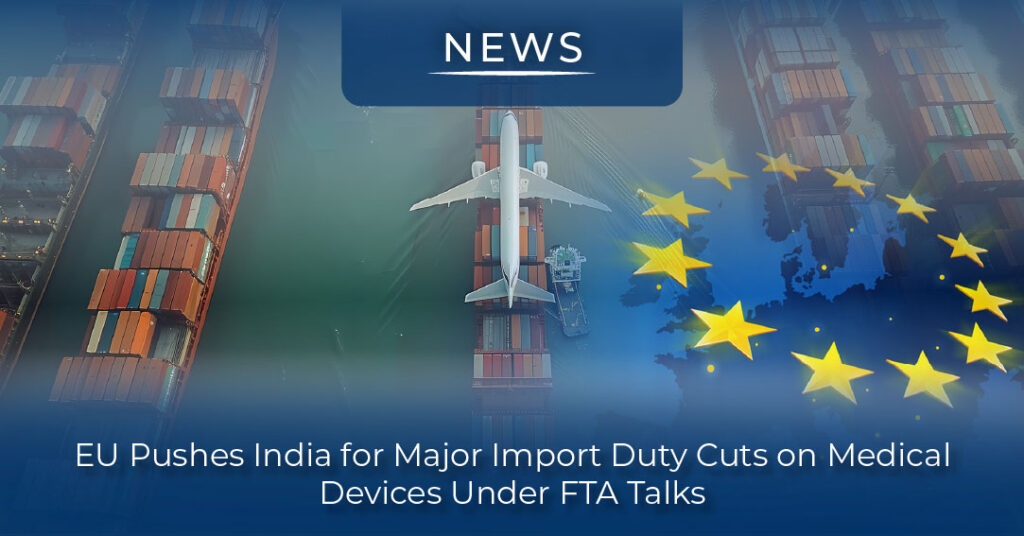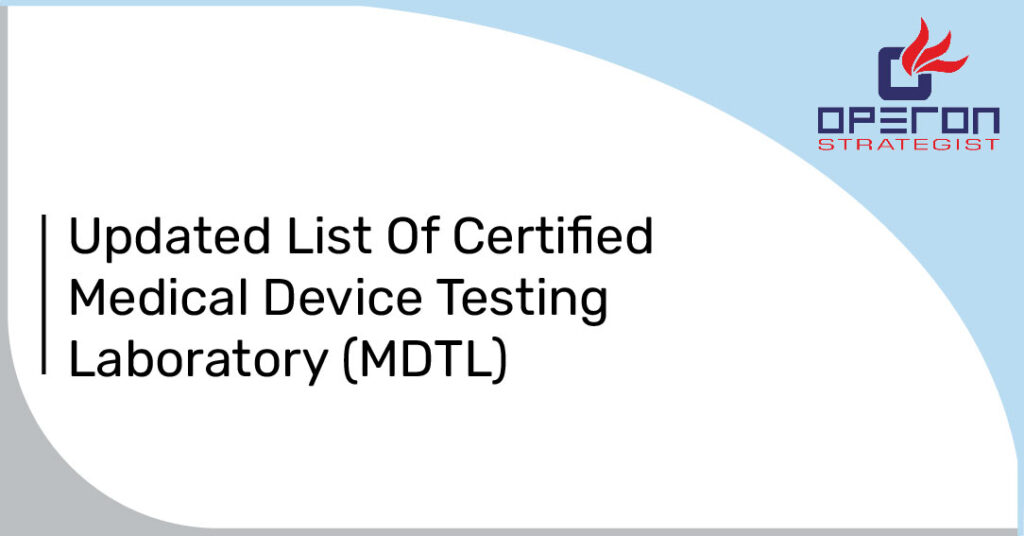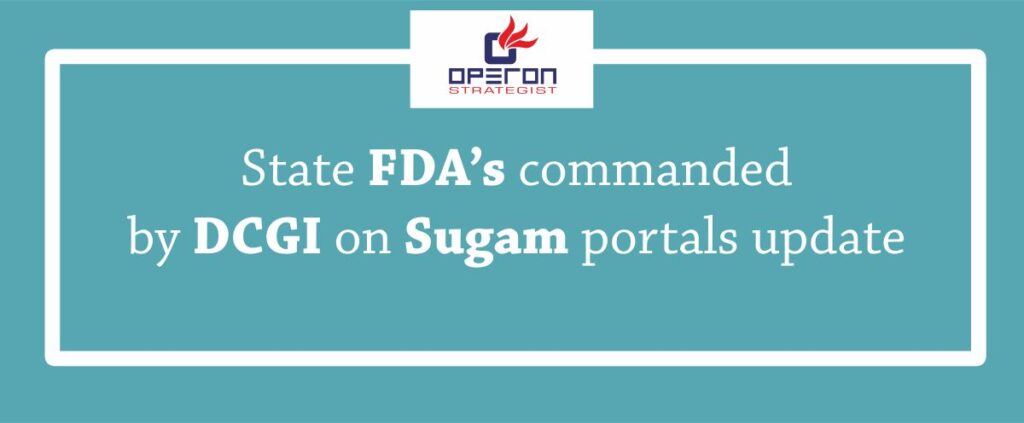The European Union (EU) is urging India to significantly reduce or eliminate import duties on medical devices as part of the ongoing negotiations for a comprehensive India-EU Free Trade Agreement (FTA). This demand is part of the EU’s broader objective to enhance market access across key sectors, including medical devices, automobiles, wines, and spirits.
Current Tariff Landscape
- India’s Tariffs on Medical Devices: At present, India imposes customs duties ranging from 0% to 10% on most medical devices, with some essential devices attracting tariffs of up to 7.5%.
- EU’s Trade Policy: The EU currently levies zero import duties on medical devices. However, Indian exporters face high non-tariff barriers, including complex regulatory approvals and certification under the EU Medical Device Regulation (EU MDR).
Looking For a Medical Device Regulatory Consultant?
Let’s have a word about your next project
EU's Negotiating Position
The EU is pushing for a complete elimination or significant reduction of Indian import tariffs on medical devices. This aligns with its broader demand for tariff reductions across other high-value sectors. The EU’s interest is backed by its substantial exports to India — medical device exports alone were valued at USD 1.15 billion in 2024.
Concerns from Indian Industry
- Lack of Reciprocity: Indian industry experts and trade bodies argue that any tariff reduction must be reciprocated by the EU addressing its non-tariff barriers. Currently, Indian exporters face significant challenges entering the EU market due to high compliance costs and long approval timelines. Regulatory certifications can cost between €60,000 and €300,000 annually, with approval times extending to 2–3 years.
- Risk to Domestic Manufacturing: Stakeholders are concerned that duty cuts may lead to an import surge, potentially hurting India’s local manufacturing ecosystem. This comes at a time when the Indian government is promoting domestic production through initiatives like the Production-Linked Incentive (PLI) scheme.
- Call for Regulatory Harmonization: Indian manufacturers are urging the inclusion of Mutual Recognition Agreements (MRAs) in the FTA to simplify regulatory approvals and reduce export-related compliance costs.
Ongoing FTA Negotiation Dynamics
- Phased Approach: The India-EU FTA is expected to proceed in stages, with core trade issues—such as tariffs on medical devices—being addressed early in the negotiations.
- India’s Bargaining Strategy: India is likely to seek reciprocal concessions, such as the easing of EU regulatory requirements and reduction in non-tariff barriers, in return for any tariff cuts.
- Precedent from Other FTAs: Recent FTAs, like the India-UK agreement, include gradual tariff reductions, reflecting India’s cautious approach in balancing trade liberalization with protection of domestic industries.
Outlook: A Balanced Trade Deal Needed
The future of the India-EU FTA on medical devices will depend on whether both sides can agree on a balanced, reciprocal framework that addresses both tariffs and regulatory barriers. Such a deal should ensure fair market access, support domestic industry growth, and facilitate greater trade collaboration between India and the EU.
Role of Regulatory Experts
Navigating international trade dynamics and medical device regulations is becoming increasingly complex for manufacturers. Firms like Operon Strategist, a global medical device regulatory consulting company, play a crucial role in helping manufacturers understand compliance requirements, manage documentation, and prepare for certification under EU MDR, FDA, and other global standards. With deep expertise in international regulations, Operon Strategist supports clients in minimizing trade risks and accelerating market entry.
“India should only consider reducing tariffs on medical devices if the EU simultaneously works to lower non-tariff barriers, enabling a fair and equitable trade environment.”
— Global Trade Research Initiative (GTRI)




